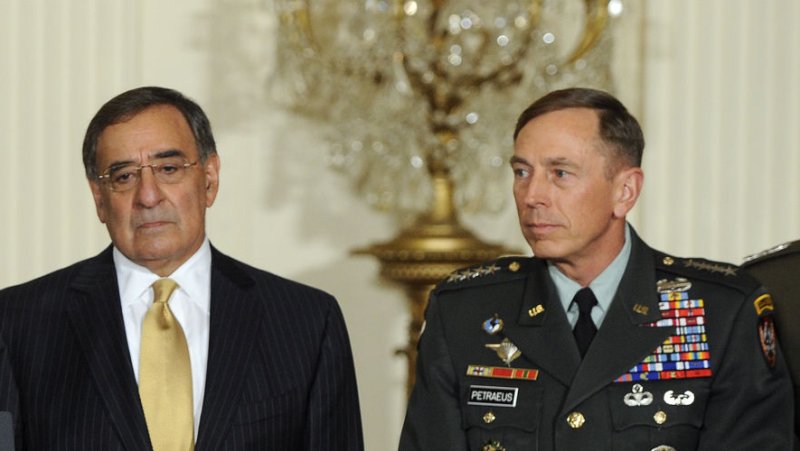The Awlaki family has filed a suit accusing U.S. Defense Secretary Leon Panetta, left, and CIA Director David Petraeus of authorizing drone strikes against a U.S. citizen. UPI/Roger L. Wollenberg |
License Photo
WASHINGTON, July 18 (UPI) -- The father of Anwar al-Awlaki, a U.S. citizen killed in a drone strike in Yemen, filed a lawsuit Wednesday against four senior U.S. officials, documents show.
Awlaki, a radical Muslim cleric who was born in New Mexico, was killed by U.S. drones Sept. 30, 2011, along with naturalized U.S. citizen Samir Khan. A second strike in Yemen on Oct. 14, 2011, killed several people including Awlaki's 16-year-old son, Abdulrahman al-Awlaki, who was born in Colorado.
Anwar al-Awlaki's father, Nasser al-Awlaki, and Sarah Khan, Samir Khan's mother, filed the wrongful-death lawsuit Wednesday in Federal District Court in Washington, The New York Times reported. The suit accuses U.S. Defense Secretary Leon Panetta, CIA Director David Petraeus and two senior commanders, Adm. William McRaven of the Navy and Lt. Gen. Joseph Votel of the Army, of authorizing and directing the drone strikes, the Times said.
"The killings violated fundamental rights afforded to all U.S. citizens, including the right not to be deprived of life without due process of law," the complaint states. The American Civil Liberties Union and the Center for Constitutional Rights are assisting the plaintiffs in the case, which seeks unspecified damages.
In 2010, Nasser al-Awlaki attempted to obtain a court injunction against U.S. efforts to kill his son, but a federal judge threw the case out, citing, among other things, the U.S. government's contention that decisions about who to kill are "political questions" not subject to judicial review, the Times said.
"Some have argued that the president is required to get permission from a federal court before taking action against a United States citizen who is a senior operational leader of al-Qaida or associated forces," Attorney General Eric Holder said in March. "This is simply not accurate. 'Due process' and 'judicial process' are not one and the same, particularly when it comes to national security. The Constitution guarantees due process, not judicial process."















